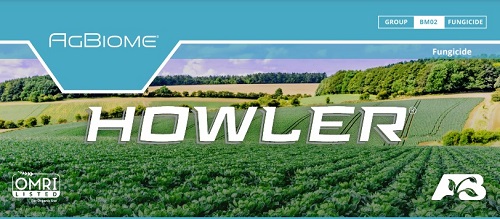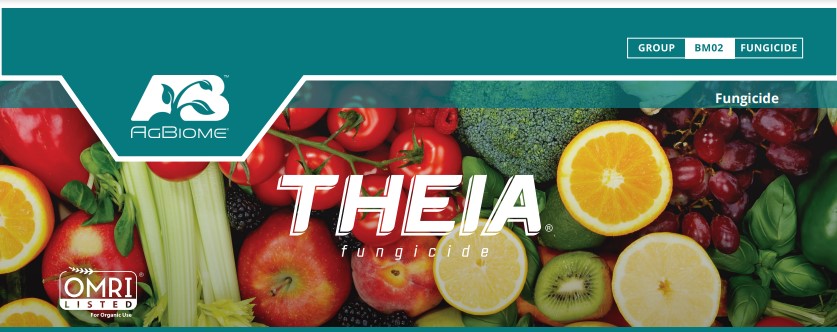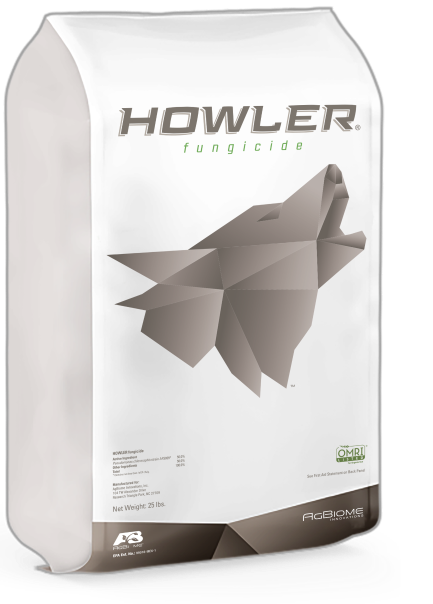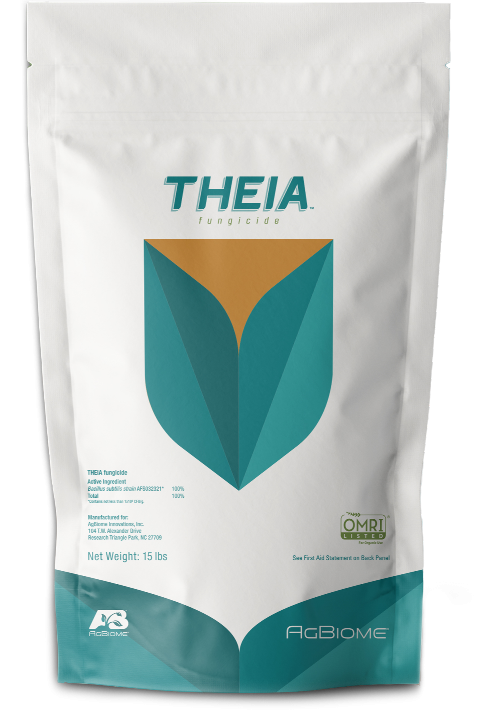AgBiome is a leader in microbiologicals and currently offers a pair of fungicides for use by both organic and conventional growers, with additional crop protection tools in the pipeline.
“AgBiome is an innovator in the biologicals space,” said Lisa Malm, technical service representative. “We were founded in 2012 and launched Howler fungicide in 2019 and launched Theia in 2022. We have a strong pipeline of seven more products that we expect to release in the next five to 10 years.”
Lisa Malm, Technical Service Representative, AgBiome
Howler fungicide is a very novel product as it uses a different strain of biologicals than the other biological fungicides on the market. “It is the first Pseudomonas chlororaphis product to be commercialized,” Malm said, noting that Howler provides broad spectrum protection against a variety of foliar and soilborne diseases. It also works on a wide variety of crops, including strawberries, leafy greens, and wine grapes.
Malm said that Howler is very effective on its own and also functions well as part of a fungicide rotation. The target diseases it attacks are Botryosphaeria, Botrytis, Colletotrichum, Monilinia, Phomopsis, Rhizoctonia, Scab, and Shot-hole.

The company’s website notes that Howler produces natural antibiotics that directly attack pathogens, and it produces enzymes that break down the cell walls of fungi and prevent attachment of spores to leaves.
The website also touts a grower testimonial for Howler from Bill Heritage of William-Heritage Vineyards in New Jersey: “Howler is really effective because it has 0-day-to-harvest and a 4-hour reentry, which is very different than most broad-spectrum fungicides. This is giving growers a flexible tool to use whenever they desire, and it will produce a better product in the end.”
"We have a strong pipeline of seven more products that we expect to release in the next five to 10 years.” - Lisa Malm
The active ingredient in Theia fungicide is a novel strain of Bacillus subtilis, which is the base microbe for other biological fungicides on the market. It blocks fungal and bacterial pathogens for effective disease prevention. The target diseases are Alternaria, Bacterial Diseases, Downy Mildew, Fusarium, Powdery Mildew, Phytophthora, Pythium, Sclerotinia, and Sclerotium rolfsii.

The company’s website notes that Theia fungicide was selected from more than 100,000 microbes using AgBiome’s in-house platform to provide a high level of disease control. It provides broad-spectrum foliar and soilborne disease control by blocking fungal and bacterial pathogens and activating crops’ natural defenses. It is also an excellent complement to AgBiome’s Howler fungicide as the two attack different diseases with distinct modes of action.
Both Howler and Theia are OMRI Listed for use on certified organic crops.


Malm credits AgBiome's in-house discovery platform and technology for developing biologicals by isolating microbes that feature natural fungus-control qualities. She said the company has a robust research and development program that uses a very scientific approach and a large body of knowledge to create products that are especially well-suited for organic growers.
While biologicals can also be an important tool in conventional crop protection, Malm said they often come to prominence through use by organic farmers, who have fewer tools to choose from. “Our two fungicides have equal suppression to synthetic fungicides,” she said. “We tend to get early adoption by organic growers because they are already more open to the use of biologicals to improve their production. They often already utilize practices and products in that sphere.”
.png)
Sustainable farming practices, Malm said, are becoming more commonplace for all farmers as consumer demand and preference is pushing the farming community in that direction.
Conventional growers, however, are also always looking for new crop protection tools, and many are also very open to giving biologicals a chance. Malm agreed that many conventional growers become acquainted with the efficacy of biologicals by first using the product on their organic acreage and then expanding it to their conventional production as part of a crop protection tool rotation.
“We tend to get early adoption by organic growers because they are already more open to the use of biologicals to improve their production. They often already utilize practices and products in that sphere.” - Lisa Malm
Commenting on the regulatory pathway for biologicals, Malm noted that it can be quicker than with synthetic products. “As with synthetic pesticides, the EPA has a stringent data collection, review, and approval process for biological products,” she said. “As biologicals are generally less of a concern from a toxicology standpoint, the collection of data and the EPA review time tend to be shorter.”






